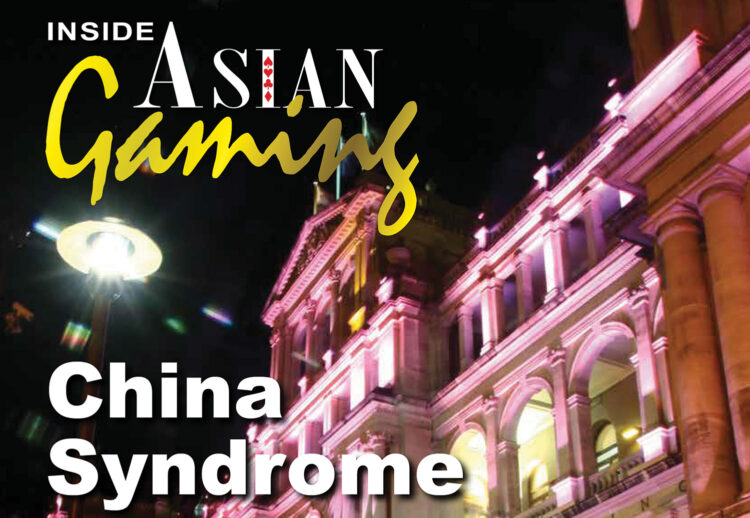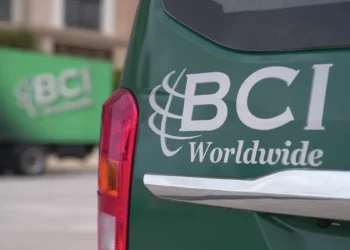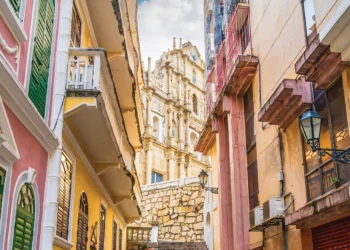In this regular feature in IAG to celebrate 18 years covering the Asian gaming and leisure industry, we look back at our cover story from exactly 10 years ago, “China Syndrome”, to rediscover what was making the news in December 2013!
 It seems rather apt, given the subject matter of this article, that Australia’s Star Entertainment Group will in just a few months’ time open its AU$3.6 billion (US$2.3 billion) Queen’s Wharf Brisbane development.
It seems rather apt, given the subject matter of this article, that Australia’s Star Entertainment Group will in just a few months’ time open its AU$3.6 billion (US$2.3 billion) Queen’s Wharf Brisbane development.
Queen’s Wharf is Star’s holy grail – a new flagship from which its existing properties, The Star Sydney and The Star Gold Coast, will follow, and perhaps, a much-needed pathway out of the muck it has found itself in these past two years. At the very least it will give Star something to crow about rather than its more recent experience of living on the defensive.
But rewind a decade and the question of who would seize control of Southeast Queensland’s casino industry was very much up in the air.
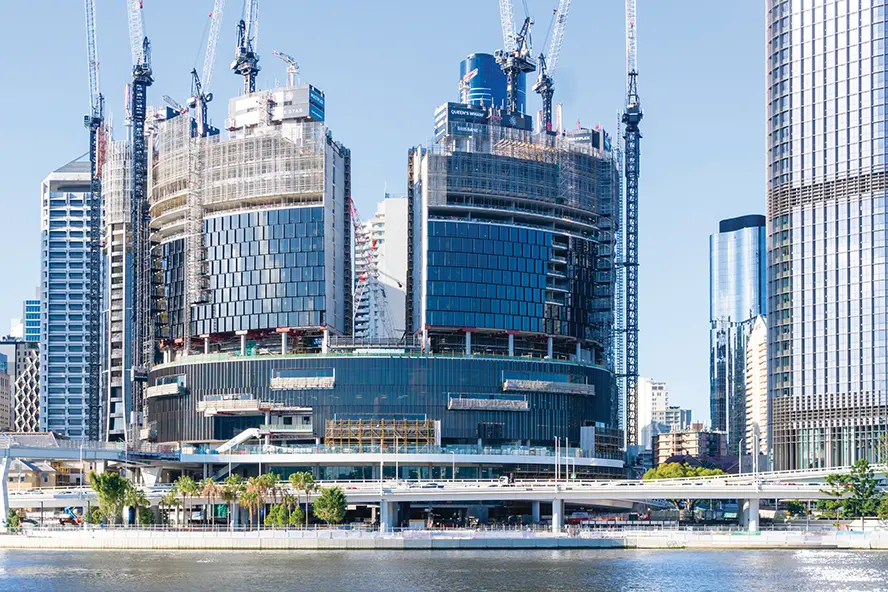
In our December 2013 cover story, titled “China Syndrome”, we delved into the war between Star – then known as Echo Entertainment – and James Packer’s Crown Resorts for the battleground of Queensland, which was at the time seen as an attractive lure for the Asian tourist market.
Packer had only recently secured a significant victory over Echo by securing a license to build a second casino in Sydney – today known as Crown Sydney – despite protestations from its main domestic rival. Now he had his sights set on Queensland as well, where Echo operated two casinos in Brisbane’s Treasury Casino & Hotel and Jupiter’s on the Gold Coast.
In various television appearances at the time, Packer accused Echo of messing up its monopoly license in Brisbane and failing to do much about its ageing Gold Coast property either, stating, “The quality of the properties in Surfers Paradise and Brisbane is a disgrace.”
Echo’s response via its then CEO John Redmond was that Brisbane was too small to welcome a second license holder – “We’re not Singapore”, he said – while promising to invest around AU$1.5 billion into its Queensland properties – most of it in Brisbane.
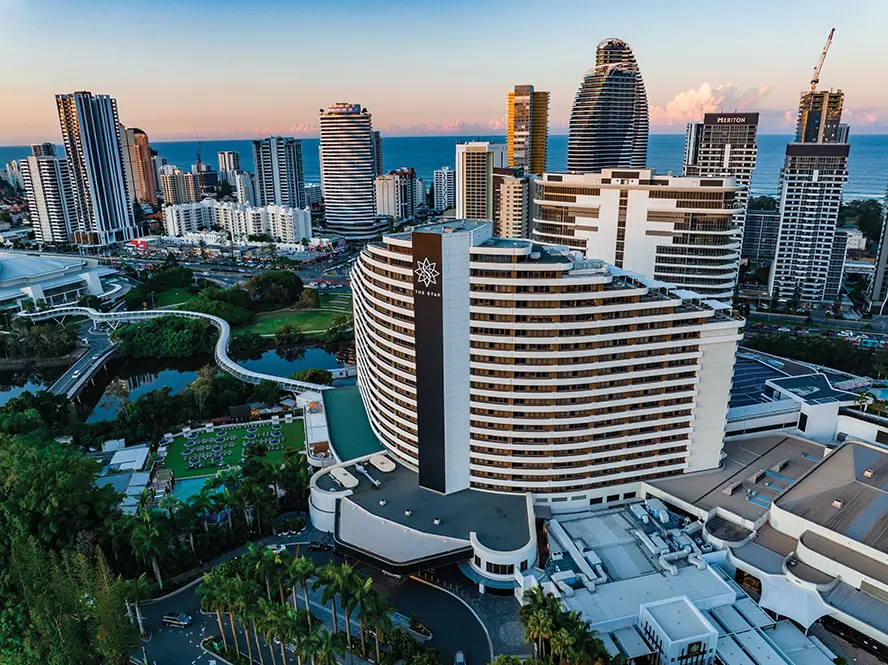
Echo would, he explained, develop “a world-class facility that will put Brisbane on the international map.”
As it turns out, the time for that is now.
In 2015, it was announced that Echo had won the race to develop a new casino in Brisbane – aided by a partnership with two Asian business giants in Far East Consortium and Chow Tai Fook Enterprises. This partnership sees both FEC and CTFE hold 25% stakes in the AU$3.6 billion Queen’s Wharf Development which is set to transform the cityscape of Australia’s third largest city. Treasury, for its part, will be no more.
A few months after securing its Brisbane license, in November 2015, Echo officially changed its name to Star Entertainment Group in order to bring its properties under a single branding. Sydney’s Star City soon became The Star Sydney and Jupiter’s The Star Gold Coast, with the latter undergoing a significant and ongoing redevelopment of its own.
Despite the regulatory woes it continues to face nationwide, Star is pushing ahead with an AU$2 billion Gold Coast masterplan that will see up to five new hotel towers developed at The Star Gold Coast. Having successfully fought off a push by the state government to issue a second Gold Coast casino license, Star is currently nearing completion of the second of these towers which when fully functional will feature multiple new bar and restaurant precincts, increased entertainment and retail options and extensive new resort facilities.
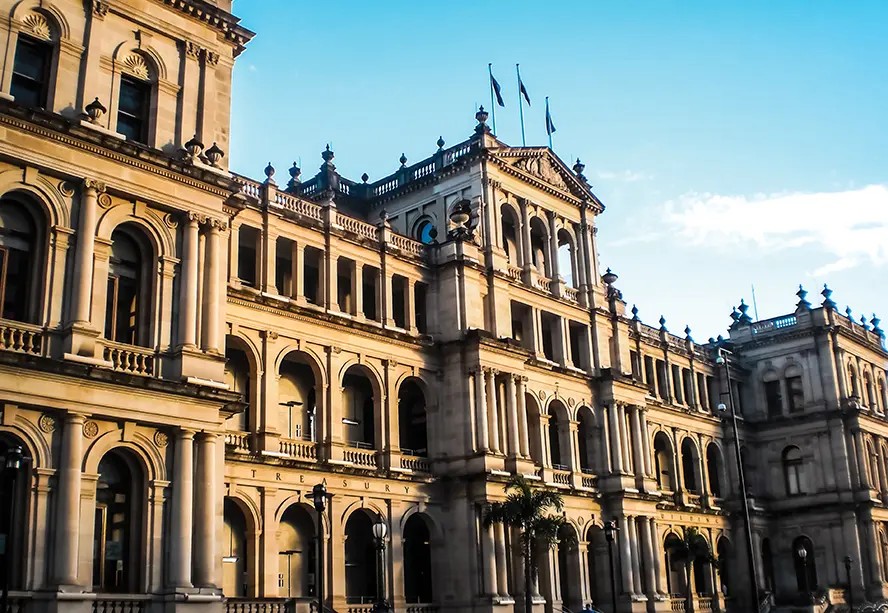
But it is Brisbane that will become Star’s new flagship in April, even if a legal battle with its developer and China’s crackdown on citizens travelling overseas to gamble loom as major headaches. Time will tell if Star’s own big gamble pays off.






